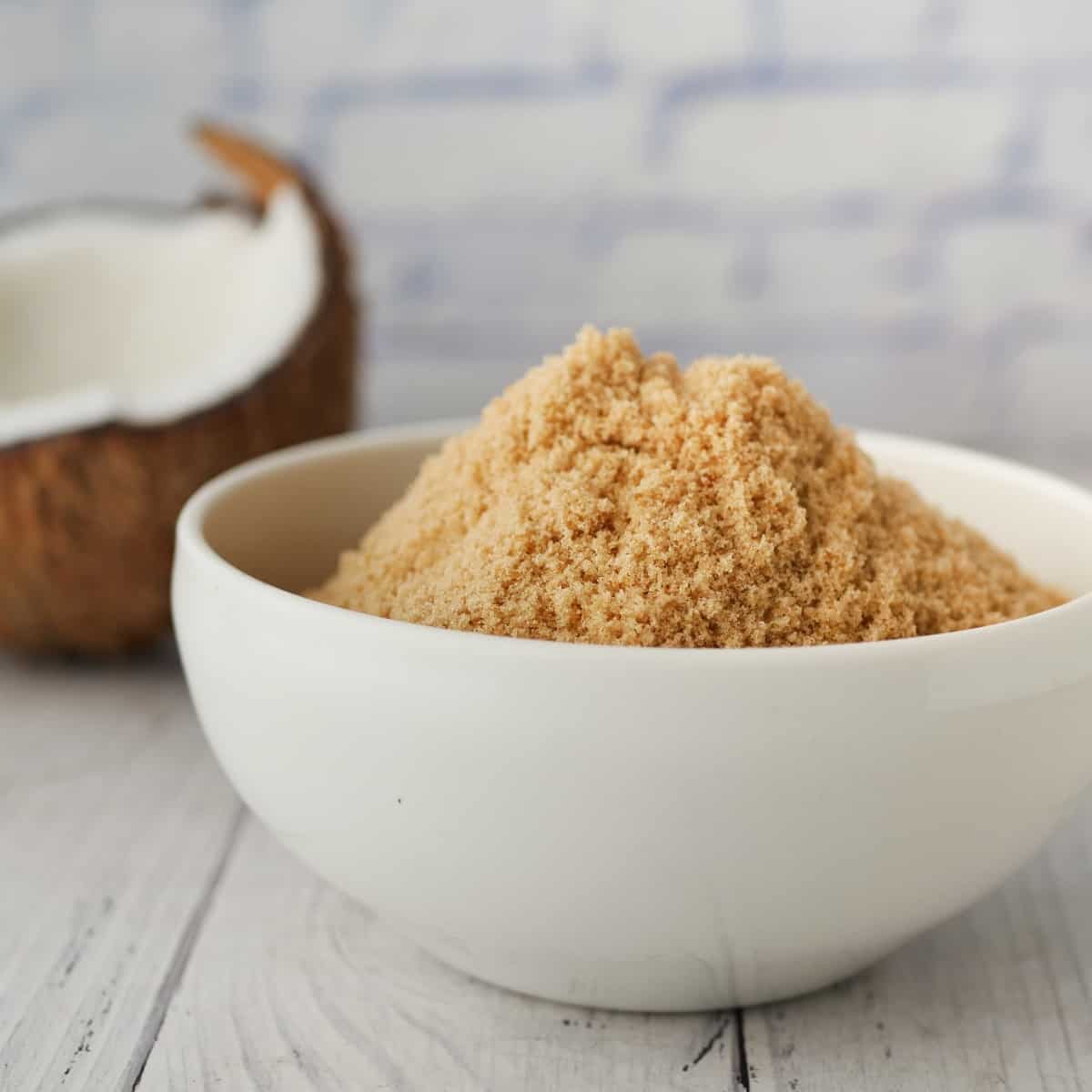
Coconut sugar substitute options have become increasingly popular as more people seek healthier alternatives to refined sugars. Aspiring chefs and health-conscious individuals should be aware of the different sugar substitutes available and how they can fit into recipes without affecting taste or texture.
In this blog post, I will explore what coconut sugar is, its nutritional benefits, and where to buy it. I'll also delve into several substitutes for coconut sugar such as brown sugar, maple syrup, honey, agave nectar, and other alternatives worth considering.
To add, I’ll also share my tips on adjusting the amount used when substituting with alternative sweeteners while experimenting with different combinations to achieve desired results in your dishes.
By understanding these aspects of coconut sugar substitutes and their usage in recipes, you'll be well-equipped to create delicious meals that cater not only to your taste buds but also support healthy eating habits.
Jump to:
Understanding Coconut Sugar
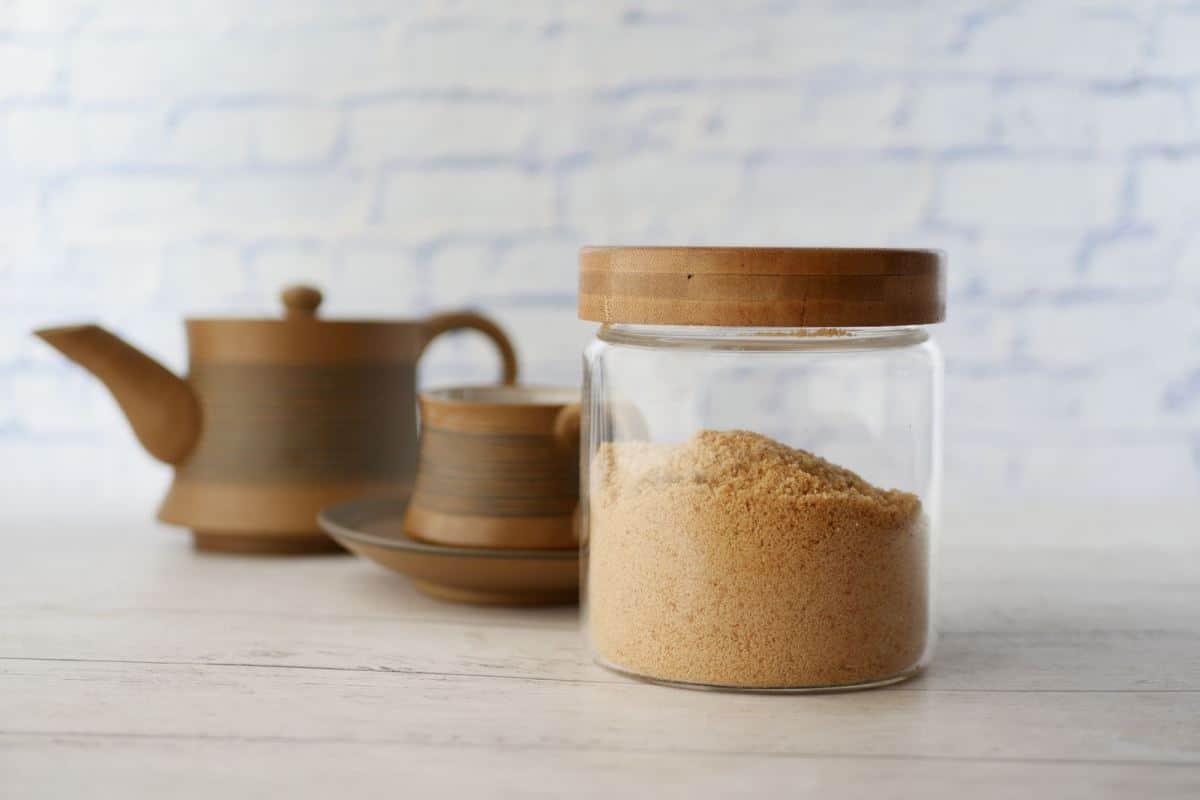
Coconut sugar is a natural sweetener made from the sap of the coconut palm tree, which has gained popularity due to its potential health benefits and unique flavor.
It retains some nutrients found in the coconut palm, including iron, zinc, calcium, potassium, polyphenols, and antioxidants. One notable advantage is that it contains small amounts of inulin—a prebiotic soluble fiber that may help maintain blood sugar balance.
Nutritional Content of Coconut Sugar
The nutritional content of coconut sugar sets it apart from regular table sugar or cane sugar. While still containing calories similar to refined sugars, it boasts several essential minerals such as:
- Iron: Important for oxygen transport within our body.
- Zinc: Essential for immune function and wound healing.
- Calcium: Necessary for strong bones and teeth.
- Potassium: Helps regulate fluid balance and supports proper muscle function.
Polyphenols, with antioxidant properties, are present in coconut sugar to protect cells from free radical damage.
How Coconut Sugar Compares to Regular Cane Sugars
Compared to regular cane sugars, like white or brown varieties—which are highly processed— coconut palm sugar undergoes minimal processing.
This allows it to retain more nutrients than traditional table sugars while offering a slightly lower glycemic index (GI). The GI measures how quickly foods raise blood sugar levels, and a lower GI means that the food has less of an impact on your blood sugar.
Yet, it's essential to remember that coconut sugar is still a type of added sugar. While it may be healthier than regular table sugars due to its nutritional content and lower GI, moderation should be practiced when consuming any type of sweetener.
Coconut sugar provides an option for those looking to replace cane sugars in recipes. With that said, let's explore some of the best coconut sugar substitutes available on the market today.
Best Coconut Sugar Substitutes
Coconut sugar has gained popularity in recent years as a healthier alternative to traditional table sugar, thanks to its lower glycemic index and higher nutrient content. However, some people may still want to avoid or reduce their intake of coconut sugar due to dietary restrictions or personal preferences.
Below, I will explore some of the best coconut sugar substitutes available that can be used in cooking and baking.
1. Agave Nectar
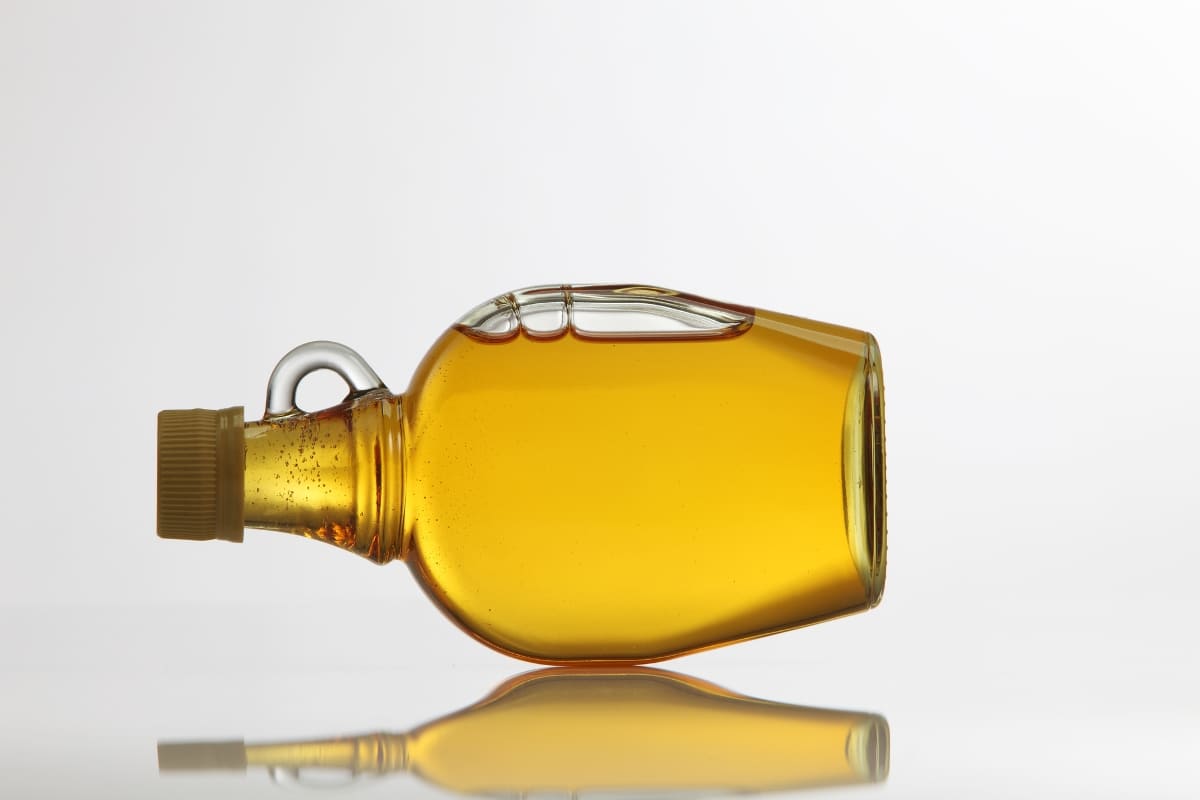
Agave nectar, also known as agave syrup, is a natural sweetener derived from the sap of the agave plant. It has a lower glycemic index than regular table sugar and coconut palm sugar, which means it may cause less dramatic spikes in blood sugar levels.
It can be used as a substitute for coconut sugar in various recipes but you have to keep in mind that agave nectar is a liquid sweetener while coconut sugar is granulated.
Typically, I replace 1 cup of coconut sugar with ⅔ to ¾ cup of agave nectar. Also, for every cup of agave nectar, reduce other liquid ingredients by ¼ cup.
Best for baked goods, beverages, desserts, sauces, and dressings.
Related: What Is the Best Agave Nectar Substitute? Here Are 10 Alternatives
2. Maple Syrup
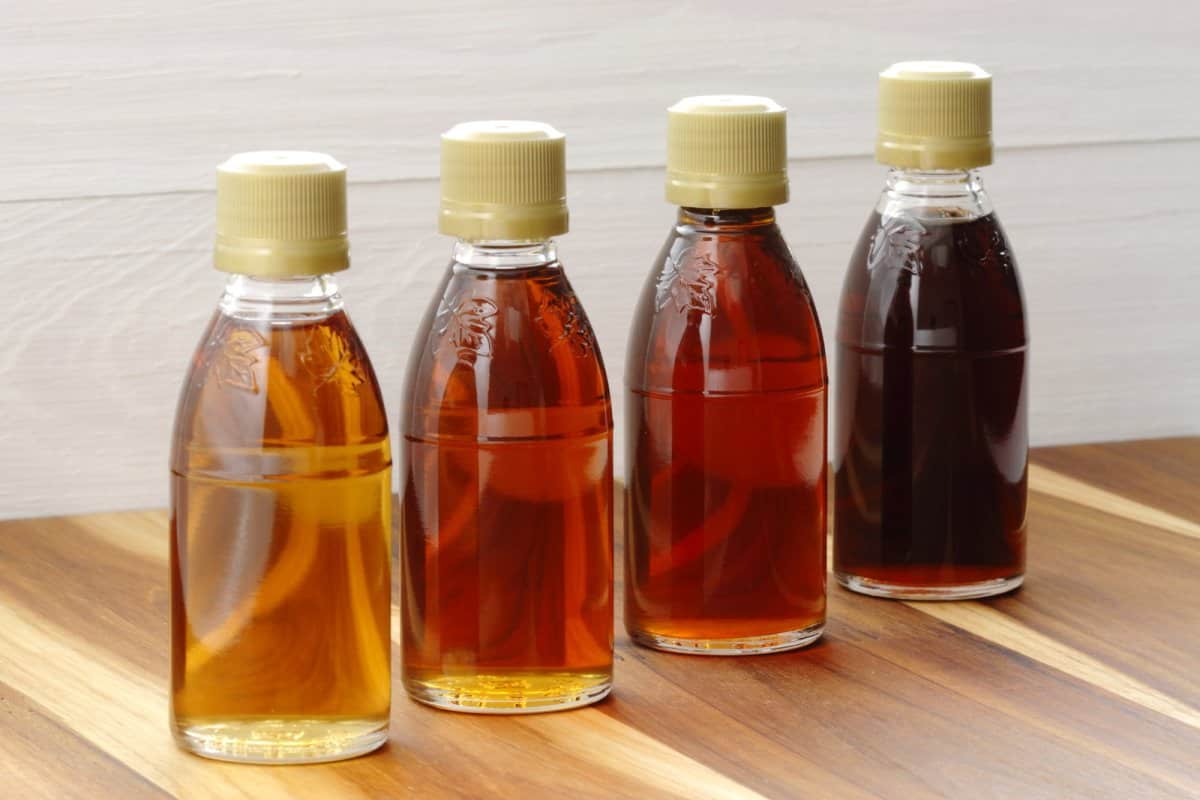
Maple syrup, made from the sap of maple trees, is another alternative to coconut sugar that offers a unique flavor profile and some additional nutrients such as manganese and riboflavin.
While maple syrup does contain fewer calories than coconut palm sugar per tablespoon serving size (52 vs 45), its sweetness level is similar so adjustments might be necessary when substituting in recipes.
Personally, I use ¾ cup of maple syrup to replace a cup of coconut sugar. Since maple syrup is liquid, I also use less of other liquid ingredients by ¼ cup
3. Brown Rice Syrup
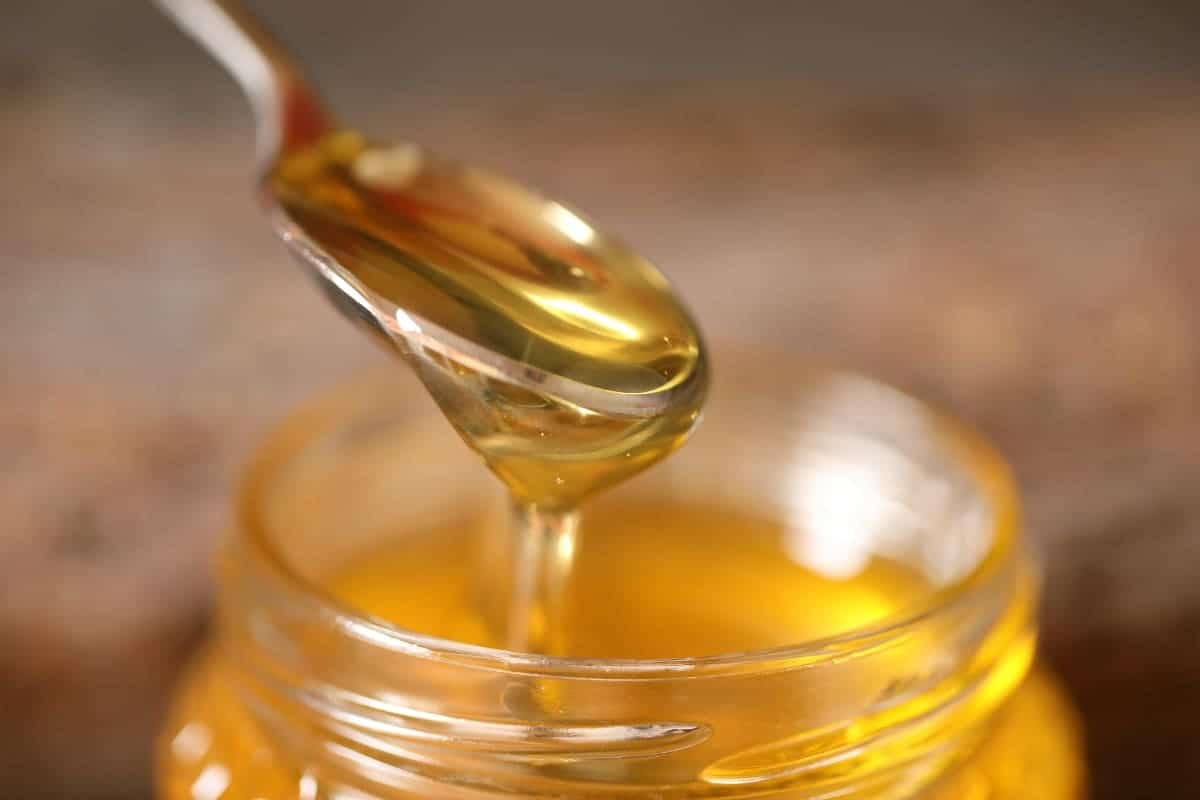
Brown rice syrup has a mild, caramel-like flavor that can be used as a substitute for coconut sugar in various recipes. However, it is less sweet than both coconut palm sugar and regular cane sugar.
For recipes, I use 1 ⅓ cups of brown rice syrup to replace 1 cup of coconut sugar and decrease other liquid ingredients by ¼ cup for each cup of brown rice syrup.
4. Stevia
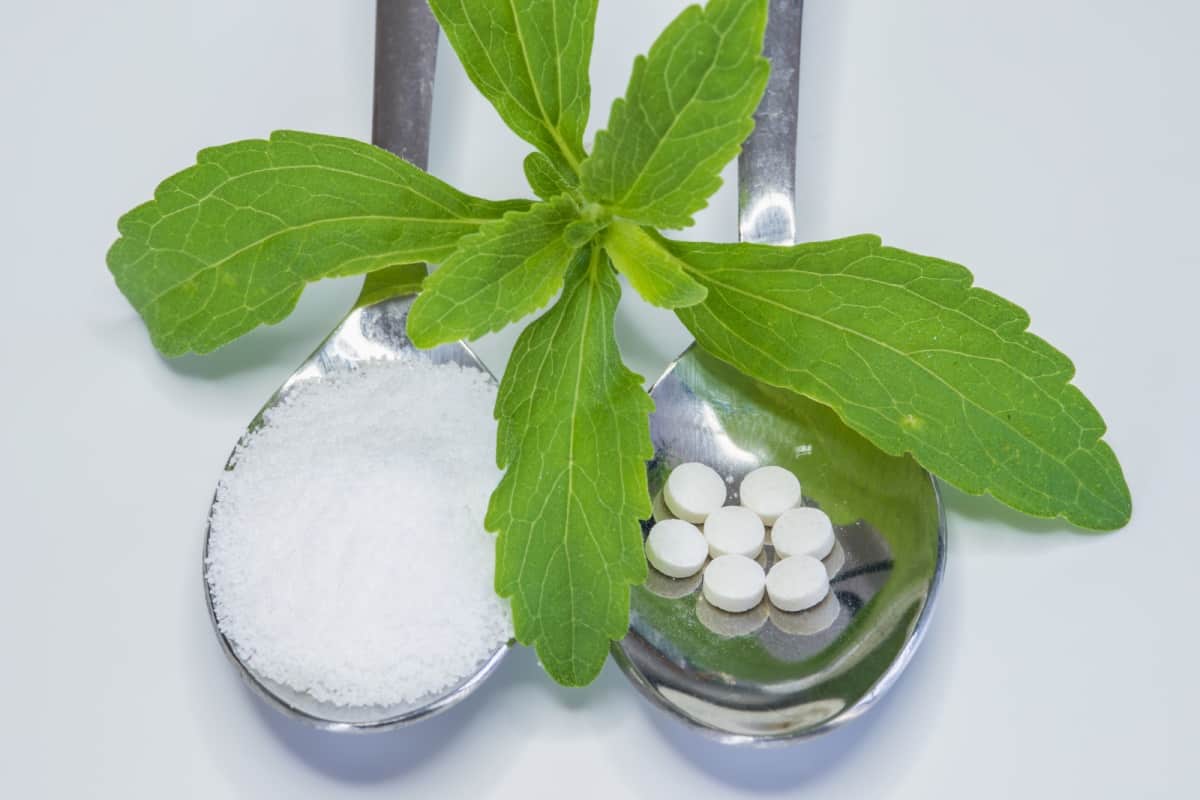
Stevia is a natural sweetener derived from the leaves of the Stevia rebaudiana plant, native to South America. It is a calorie-free sugar substitute that has gained popularity due to its sweetness, which is 200-300 times that of regular sugar, and its minimal impact on blood sugar levels.
When substituting stevia for coconut sugar in recipes, you need to consider the sweetness ratio and the desired texture of the final product. Coconut sugar has a 1:1 sweetness ratio to regular sugar, while stevia is much sweeter, so less is required.
Best for just about anything.
5. Erythritol
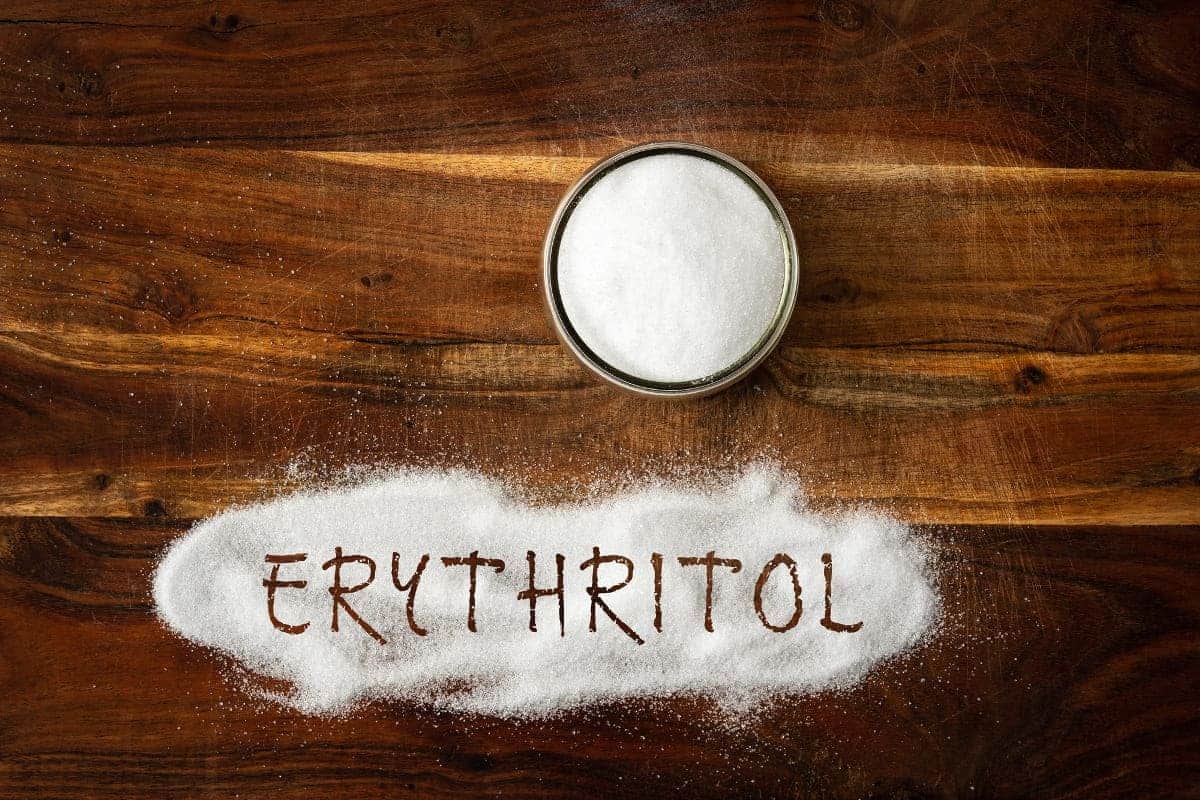
Erythritol is a sugar alcohol commonly used as a low-calorie sugar substitute. It has a crystalline powder consistency and a mild, sweet taste without any bitter aftertaste.
This coconut sugar alternative can be used as a 1:1 substitute for coconut sugar, but it does not contribute moisture or bulk, so it's best for recipes where those properties are not crucial.
Best low-sugar jams and preserves, desserts, and beverages.
Tips for Using Coconut Sugar Substitutes in Recipes
- Adjust the amount of substitute sweetener: Coconut sugar has a 1:1 ratio to regular sugar, but other sweeteners like stevia or erythritol are much sweeter. Start with less and add more gradually, tasting as you go to achieve the desired level of sweetness.
- Add a bulking agent: Coconut sugar contributes volume and moisture to recipes, so using a substitute like stevia or erythritol may cause changes in texture. Add a bulking agent like applesauce or mashed bananas to help maintain the original texture of the recipe.
- Keep an eye on cooking time and temperature: Coconut sugar caramelizes at a lower temperature than regular sugar, so you may need to adjust your recipe's cooking time and temperature if using a substitute that doesn't caramelize as easily.
- Consider the flavor profile: Coconut sugar has a distinct caramel flavor that other substitutes may not have. Consider adding a small amount of molasses or vanilla extract to mimic the caramel notes.
- Use liquid sweeteners sparingly: Liquid sweeteners like honey or maple syrup can be used as a substitute for coconut sugar, but they have a higher moisture content that may affect the recipe's texture. Use them sparingly and adjust other liquid ingredients accordingly.
Frequently Asked Questions Coconut Sugar Substitute
Coconut sugar is considered a healthier alternative to refined white sugar due to its lower glycemic index and higher nutrient content, including minerals like potassium, magnesium, and zinc.
However, it still contains calories and should be consumed in moderation.
Some people may choose not to use coconut sugar because it can be more expensive than other sweeteners or might have a distinct flavor that doesn't suit all recipes.
Additionally, while it's healthier than refined sugars, excessive consumption can still contribute to weight gain and health issues.
No definitive evidence suggests that moderate consumption of coconut sugar causes inflammation; however, consuming large amounts of any added sugars could potentially lead to inflammation-related health problems such as obesity or type 2 diabetes.
The glycemic index (GI) of coconut sugar is lower compared to regular table sugar. This means it raises blood glucose levels at a slower rate, which helps prevent sudden spikes in blood glucose levels after consumption.
Experimenting with Coconut Sugar Substitutes
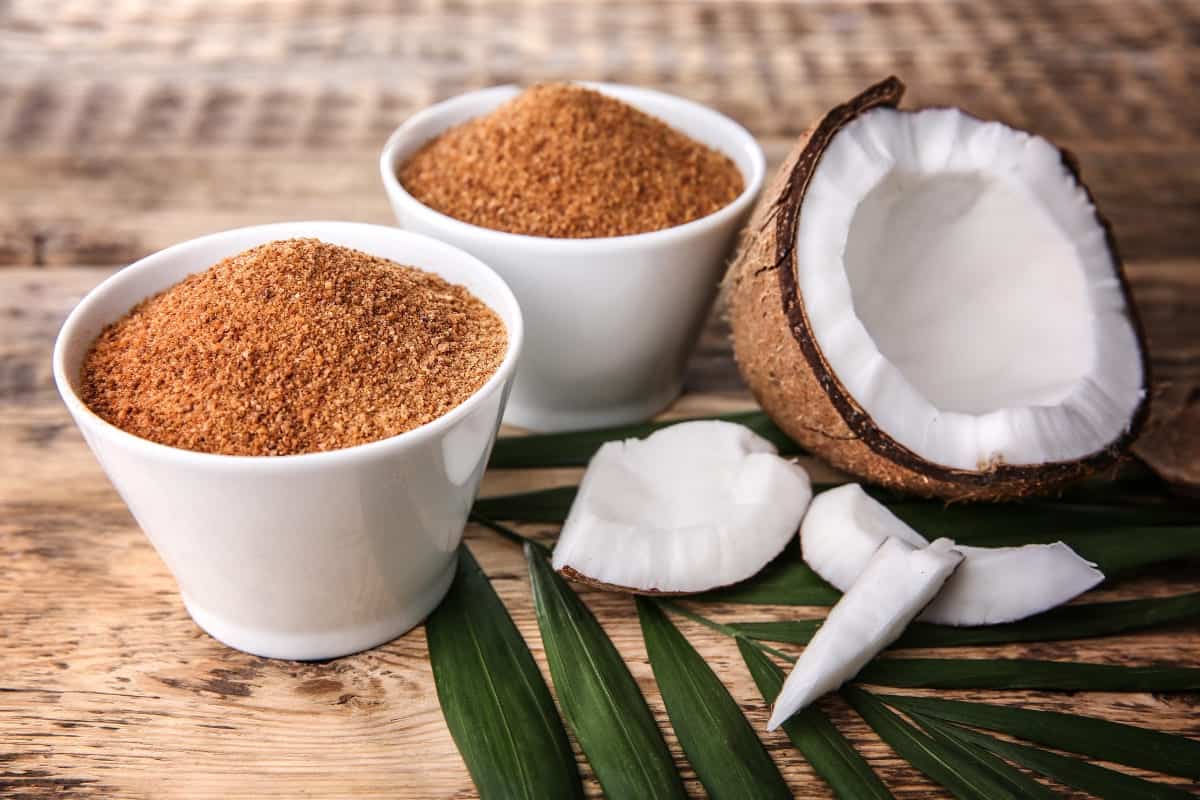
For those seeking an alternative to coconut sugar, there are a number of options available with varying consistencies and flavors. Whether you're looking for a healthier alternative or just something with a different flavor profile, each substitute has its own unique consistency and taste that can be used in various recipes.
By understanding the differences between these alternatives and their usage tips, you'll have no trouble finding the perfect coconut sugar substitute for your needs.
Discover delicious recipes and cooking tips for substituting coconut sugar in your favorite dishes. Learn how to make air fryer-friendly meals with our comprehensive buying guides and how-to's.
You Might Also Like:
Natural and Artificial Vanilla Sugar Substitutes
Wedderspoon Manuka Honey Review
Comvita Manuka Honey Review
Best Palm Sugar Substitutes
Recipe
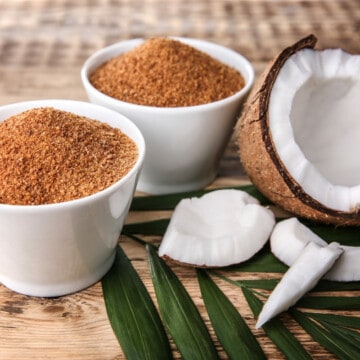
Best Coconut Sugar Substitutes
Ingredients
- ⅔ cup agave nectar
- 1 cup brown rice syrup
Instructions
Option 1: Agave Nectar
- Use about ⅔ cup agave nectar for every 1 cup of coconut sugar called for in a recipe.
Option 2: Brown Rice Syrup
- Replace coconut palm sugar with an equal amount of brown rice syrup.
Notes
You can find the video in the post above. If you don't see a video, please check your browser settings.


Leave a Reply